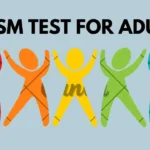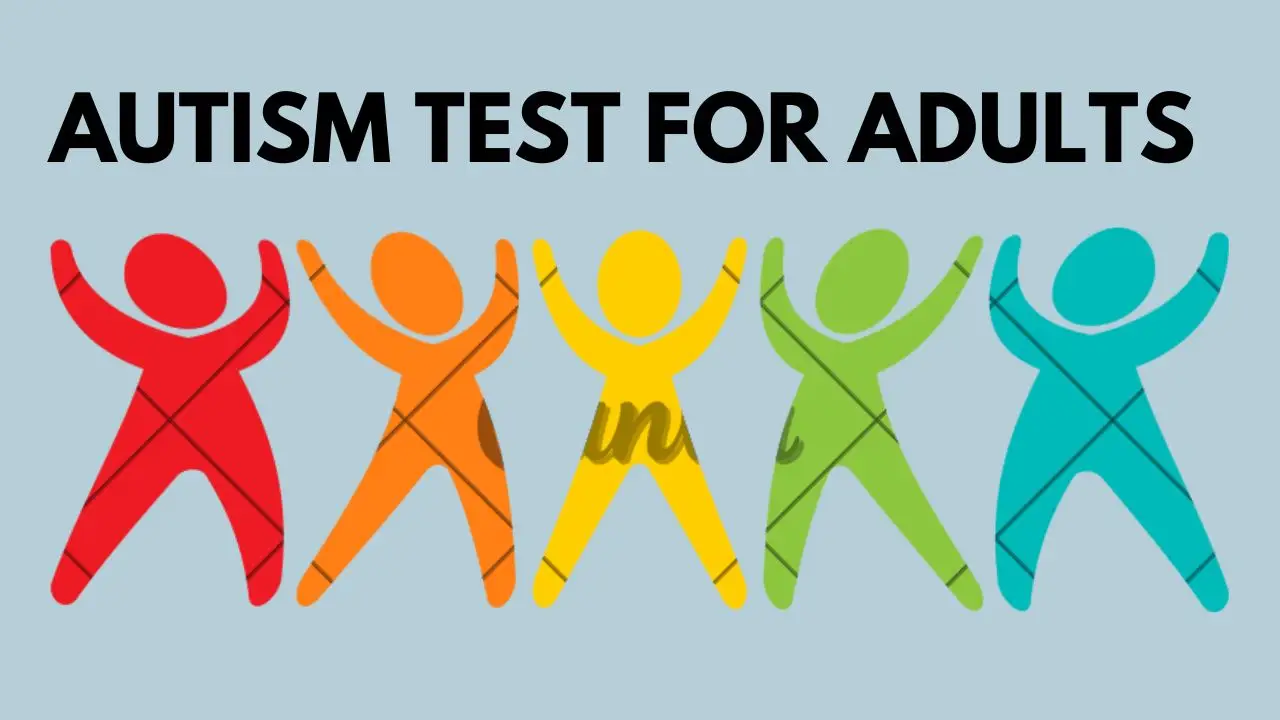In modern times, the understanding of autism has gained new significance. Many children are diagnosed with autism but what about the thousands who are not and have to live their lives feeling lost? If you’ve ever questioned yourself or someone you love about the possibility of being on the spectrum — you’re not alone. This blog post will cover what an autism test for adults looks like, answer common questions about testing and tackling a diagnosis of adult autism and more. So, when you get to the end of this post, you will know just how much an Adult Autism Screening can positively impact your life if you are looking for answers!
Read More. Clear Liquid Diet Foods
Why Autism Test for Adults?

Autism is a phenomenon that is misunderstood by many adults. Diagnosis of Autism during Adulthood provides perspective on lifelong struggles and can be a pathway to appropriate services. This could be due to the fact that many adults grew up at a time when autism was not really on the radar. Which left many people wondering why they were different. An autism test for adults can change lives, bringing clarity to their situation and more importantly community supports.
Being able to identify and normalize some of the characteristics associated with autism can relieve mental health symptoms. Understanding who you are and knowing that your struggles were caused not by personal failure but by improper wiring can relieve the burden of years spent doubting, self-loathing, living under anxiety or depression. Additionally, adults who are frequently tested have better relationships—both personal and professional—as they learn to discern different types of communication and how best to work with it.
Adult Autism Screening is not just important for our individuals. The same goes for families/caregivers. Knowing and understanding a significant other on the spectrum helps to provide more specific support, creating an environment where both of you can be comfortable in your individual worlds.
What Exactly Is Autism Test for Adults?
Background: Autism tests for adults are intricate instruments crafted to detect characteristics seen in autism spectrum disorder (ASD) among people who may have gone undiagnosed as children. These tests are especially critical since autism presents very differently in adults than children and the tests generally used for kids are not as black-and-white. The testing generally consists of both self-reporting surveys and professional assessments that are designed to thoroughly represent the creation and personality of a respondent.
Self-Assessment Questionnaires: These are often the first step, with questionnaires such as the Autism Spectrum Quotient (AQ) or Ritvo Autism and Asperger Diagnostic Scale (RAADS-R). The questionnaires commonly encompass inquiries that concentrate on different facets of daily life, including social behavior patterns, communication approaches, preference for structure or routine, sensory processing sensitivity differences and mood reactions. These questions are designed to detect patterns or characteristics that may be consistent with the diagnosis of autism, giving a first suggestion of an individual place on the spectrum.
They may ask if a person feels at ease in social environments, favors predictability, or is sensitive to sensory stimuli such as sound or light. In that sense, these self-assessments may be useful for providing insight into our behaviors and tendencies and are therefore a great introductory step for those interested in learning about their autism ever since the first argument.
Assessments by a professional: While the self-evaluation is useful, you need an assessment from a professional to obtain a more conclusive diagnosis. Autism evaluations are done by psychologists or psychiatrists who specialize in autism and will use different methods to get the full picture.
Interviews: Specialists hold extensive interviews with the individual (as well as possibly relatives) to discuss the person ‘s developmental history, their existing functioning and what challenges they are currently experiencing. These interviews are meant to gain an understanding of their lifetime history and how certain traits may relate to autism.
Behavior: Watching for behavior in a variety of environments provides insight into the way one interacts with others and reacts to environmental stimuli. This approach creates an opportunity for professionals to observe the actual demonstrations of those characteristics.
Multifaceted Diagnostic Approach: Diagnosis of autism in adults is multifactorial. That’s important because there is not one test that can capture all things of autism. Rather, it uses a blend of methods to give an overview of the patient’s individualized specialty. This can also help to identify specific support needs or strategies that could enhance quality of life.
Such tests not just facilitate diagnosis but also enable people with knowing their experiences and characteristics better. Identifying the patterns and struggles allows people to better navigate their lives, both personally and professionally, seek out professional support as needed, and find a community of folks who can relate to what they are going through. In summary, it aims to offer a straightforward, supportive route for those wanting clarity in terms of where they fit into the spectrum of autism within themselves.
What Are Some Traits of Autism Test for Adults?
Common Signs of Autism in Adult Males Over 40: It is important for those contemplating if the test will be useful to notice signs of autism before adulthood. Recognizing those characteristics is an important step toward determining whether or not a diagnosis is needed, and helps lay the groundwork for greater awareness of yourself so that you can seek out adequate support and accommodations.
Issues with social communication
A major indication of autism in adults is challenges in social communication. A lot of adults on the spectrum struggle with reading social cues, keeping up with conversations, and having perspective taking. There are difficulties in someone struggling to read body language, facial expressions or even tone of voice that may result in misinterpreting a situation or basic social faux pas. The unspoken rules and nuances of conversations can make them just too overwhelming to have successfully. So social interactions can get tiring, which makes a person tend to shun large gatherings or embrace one-on-one dialogues where terms are more obvious and straightforward.
Sensory Sensitivities
Another thing that makes autism, well, autism and can affect daily life in a major way is sensory sensitivities. For adults with autism spectrum disorder, very bright lights, a loud noise or certain textures can make them feel overstimulated. These sensitivities can affect clothing (what feels awful to wear, is something unbearable or not bearable at all!), it may lead to food preferences because of the texture as well. Sensory overload in social situations can lead to people withdrawing or avoiding going out altogether because it all becomes too much for them. The key is to understand those sensitivities, and management strategies can include wearing noise-canceling headphones or being in places with controlled lighting so we can create more pleasant environments.
Like Routine and Predictability
Many adults with autism have a very strong desire for routines and predictability. Most of us enjoy a certain routine, but for people on the spectrum, changes in routine can be distressing. Environments with Structures provide a feeling of security and control since the expectations are clear, consistent, predictable. This tendency toward predictability can also carry over into the daily activities, work tasks and leisure pursuits of those with an obsessive-compulsive personality. Because unpredictability can be scary, it is vital that people plan and prepare for transitioning whenever possible. By creating routines, you are not only providing comfort but also increasing productivity and mental well-being.
Diagnosing Autism Test for Adults: The Process
Recognizing the Need for an Evaluation The first step in diagnosing autism as an adult is to realize that you should get evaluated. For a lot of people, this happens when they read about traits of autism or after some urging from family and friends. When the decision is made, then one of the first steps is to take an Autism Spectrum Test as a self-assessment test.
The next step after your self-assessment is the Getting a Professional assessment! Finding a mental health professional who works with adults on the autism spectrum will be an important step. They will perform multiple interviews, covering topics such as childhood behavior patterns, present issues and ways to cope.
Partner, family or close friend perspective are all common for a full evaluation. This comprehensive method ensures that the diagnosis encompasses all facets of a person’s experiences in multiple environments and with various relationships.
FAQs About Adult Autism Screening

There are a number of things adults looking into an Autism Spectrum Test have either heard or imagined about what the process is like. Another area that people fear is to not want to feel labeled or stigmatized. But many adults feel that a diagnosis offers relief and understanding, not condemnation.
An additional issue is the validity of autism assesments in adulthood. No test is perfect, but a well-balanced mix of self- and professional evaluation provides you with an effective route to discovering where you fall on the scale. Have an open mind and trust the professionals doing your process.
Lastly, there are concerns about what a diagnosis might mean. Keep in mind that even though you have a diagnosis, it does not represent who you are — just consider it as the tool for self-understanding. It may be an entry point to better resources, support, and accommodations that increase quality of life.
What Your Adult Autism Screening Could Do For You?
Taking an adult autism test can change everything you thought you knew about yourself. For a lot of people, being diagnosed feels validating — like their inner truth about feeling different/hyperactive/insane all these years is finally confirmed. Such validation often results in better mental health, lower anxiety levels, and even improved self-worth.
Another thing that understanding autism traits can do for you is improving relationship skills. You learn how to ask for more effective communication of needs and loved ones learn the most effective ways of supporting you. This shared knowledge builds connections and contributes to a safer atmosphere.
For professionals, a diagnosis might mean some workplace accommodations so that individuals are able to succeed. Neurodiversity is being embraced by many organizations today and as a result autistic spectrum employees are often supported in ways that are meaningful for them.
Caregivers and the Mental Health Community
Test navigators: As the name suggests, these are also caregivers who help adults going through an autism test. They provide emotional support, assist with making appointments, and give good information during the assessment process. Involvement of these practitioners often leads to a more holistic view of the person experiences.
In finding an Autism Spectrum Test for adults, the support of the mental health community is essential as well. Experts provide guidance, perform assessments and create customized service plans. They make certain that everyone gets what they need in order to enjoy life.
Further Reading Resources
However, being an adult on the spectrum is anything but easy. If you want to make sense of your experiences or try to help someone else, there are tons of resources that can provide guidance, information and connections within the community. Here are a few helpful resources to check out:
Online Communities and Forums
WrongPlanet — Many people with autism are active on forums at websites like Wrong Planet, where they discuss everything from daily living to special interests.
This popular subreddit is an active forum for people on the spectrum to share stories, get advice and meet others who have similar experiences.
Aspies Central – A forum for adults who have Asperger’s Syndrome and others on the autism spectrum, where they can talk about their life experiences—good or bad—with those who understand and can relate to them.
Books and Articles
- By: Tony Attwood — The Complete Guide to Asperger’s Syndrome is a comprehensive book about everything from diagnoses to adults with Aspergers experience, covering relationships and employment.
- Uniquely Human: A Different Way of Seeing Autism, by Barry M. Prizant — A reshaping of our view through the lens of autism, urging humanity and capability over pathology.
- Autism Research Journals: Reading peer-reviewed articles can give the most current findings and perspective on adult autism (e.g. insights into living with autism).
Professional Organizations
Autism Society — This group provides a ton of useful resources, from information on autism to opportunities for advocacy and local support groups. They have materials available to help you and your loved ones.
UK-based in its support services, educational resources and advocacy initiatives. They provide advice for adults on the spectrum and their families as they traverse different developmental stages.
Autism Speaks — One of the most well-known organizations advocating for autistic rights and funding autism research, Autism Speaks offers online resources for adults that include toolkits related to employment, independent living, relationships and more.
Engaging with These Resources
Engagement with these resources could provide you a scholarship to promote understanding of autism in adulthood. Joining online communities can also be a unique experience where you share stories and make friends who know what you are going through. You can dig deeper in reading books and articles, which will provide you with practical insights to navigate your daily challenges and opportunities. Educational resources and structured support for advocacy offered through professional organizations helps to create spaces where people on the spectrum can flourish.
Conclusion
Adult Autism Acceptance is a lifelong journey of self-discovery and acceptance. If you do find yourself contemplating an autism test for adults — whether that’s personally, or helping a loved one through the process — knowledge is power. You hope this article helps you learn about the many angles around Adult Autism Screening to approach this journey feeling more assured and compassionate. Keep in mind that you are not alone and there are so many resources, and communities out there to help you. Get started today and see the world










